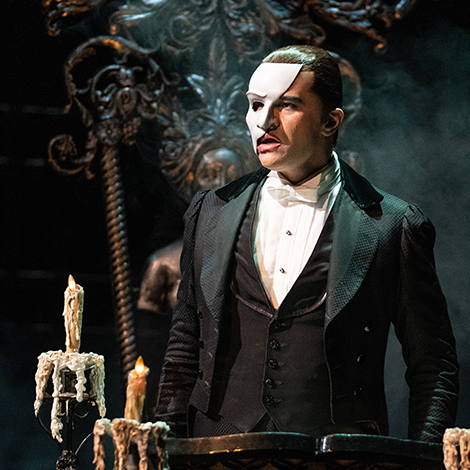“The Music of the Night” has finally struck its last note. On Feb. 18, 2023, Broadway’s longest running show will have its closing bow, marking an end to its extraordinary 35-year legacy. “The Phantom of the Opera” takes with it a loving piece of Broadway’s heart.
While shows often come and go in the world of musical theatre, “Phantom” felt immovable from its place in Majestic Theater. For some, the sweeping lights, iconic, luscious tunes and tantalizing performances meant theatre itself — a representation of music, acting and technical acclaim that encompassed the soul of live entertainment. For others, “The Phantom of the Opera” was among some of the first soundtracks to fall upon young, impressionable ears. Its music has nurtured a love of theatre for an entire generation of aspiring artists, going so far as to spread its magic globally. For many, its closing is more than just another curtain call. It’s a bittersweet goodbye to all that the Phantom stood for in the lives of performers and dreamers alike.
Like many other businesses, Broadway took a hit during the COVID-19 pandemic. Now that the world has entered a limbo, with most businesses and services opening back up, reopening meant figuring out which shows were making the cut, and which ones … weren’t. Broadway favorites like “Wicked” and “The Lion King” did fairly well, but it’s expensive to (almost) drop an enormous light-up chandelier every night on the audience. “The Phantom” has his own bills to pay!
“The Phantom” and Christine Daaé aren’t gone forever. There are still several productions of this beloved musical happening elsewhere in the world, but for now, their chillingly beautiful blend of powerful, rich baritone and exquisite soprano will soon ring out for the last time.
You may remember the 2004 film production of “The Phantom of The Opera,” starring Gerard Butler and Emmy Rossum. This is another rendition of the musical that will continue to exist for as long as movie-watching does, though there are some dissenters that argue about the interpretation of the show, attacking everything from its execution of the material to its casting and setting choices. Any medium of art will have those who critique it. The film deserves greater mention for its dedication to Andrew Lloyd Webber’s mastery of a musical, which now also forever lives through such productions.
As much as life is partially about knowing how and when to begin, it is about knowing how and when to stop. The Phantom could’ve continued its run on Broadway, swinging that chandelier to its legendary music for years to come. But with that, you run the risk of staying stagnant — an artist’s worst nightmare. How long is too long? How many years does it take to really prove that you know your stuff, you are worthy of being here, you are one of the best? “The Phantom” definitely proved itself not only on Broadway, but all over the world, within those whose hearts will always skip a beat as soon as its iconic notes hit. The point is that as with everything, “The Phantom of The Opera” was nearing its end, and there is grace with knowing that.
There is little worry for the future of theatre now that it’s set to lose an integral piece of its core. “The Phantom” leaving is something to mourn, but it is also something that opens the oh-so-glorious gateway of possibility. Nothing could ever replace the “Music of the Night,” but there is always another show, play or performance up and coming in the arts. That’s the nature of this genre; there is growth, expansion and passion stuffed, snuck and sealed into every nook, cranny and crevice available. There is bound to be a musical born from the same brilliant stuff that the “Phantom” was.
Monita Seng can be reached at [email protected]u.



















